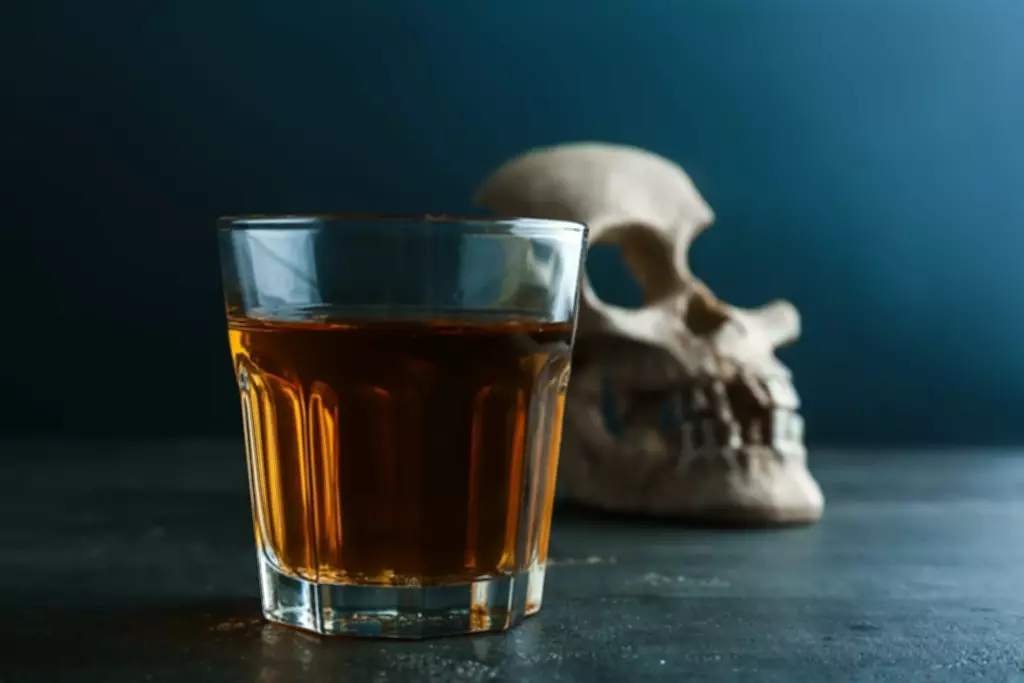Drug Abuse & Addiction: Effects on Brain, Risk Factors, Signs
Your provider will ask you (and possibly your loved ones) questions about your patterns of substance use or problematic behaviors. For some substances, such as opioids, the withdrawal symptoms are so severe that they create significant motivation to continue using them. Many people develop substance use disorder after first using a gateway drug, which is often a drug that is more widely available and socially acceptable. People with substance use disorder struggle to stop using the substance and often experience painful physical or psychological symptoms when they try to. The type of treatment a doctor recommends depends on the severity and stage of the addiction.

National Institutes of Health

Regardless of the treatment approach, each method offers education about addiction and recovery. This may include topics like making life changes to support recovery, being honest, seeking help when needed, and practicing self-care. Severe withdrawal can lead to dangerous and life-threatening health issues. If you experience withdrawal symptoms, seek medical attention for support with withdrawal management.
How healthy is sugar alcohol?
With addiction bill passed, now Oregon faces biggest challenge • Oregon Capital Chronicle – Oregon Capital Chronicle
With addiction bill passed, now Oregon faces biggest challenge • Oregon Capital Chronicle.
Posted: Fri, 22 Mar 2024 07:00:00 GMT [source]
It may help to get an independent perspective from someone you trust and who knows you well. You can start by discussing your substance use with your primary care provider. Or ask for a referral to a specialist in drug addiction, such as a licensed alcohol and drug counselor, or a psychiatrist or psychologist. Many, though not all, self-help support groups use the 12-step model first developed by Alcoholics Anonymous.

Substance Use Disorder (SUD)
- Treatment approaches tailored to each patient’s drug use patterns and any co-occurring medical, mental, and social problems can lead to continued recovery.
- Genetics also increase the likelihood of an addiction by about 50 percent, according to the American Society of Addiction Medicine.
- During the intervention, these people gather together to have a direct, heart-to-heart conversation with the person about the consequences of addiction.
- Both of the latter drugs are effective if started before quitting.
- Despite manufacturer claims, these are chemical compounds rather than “natural” or harmless products.
Other possible causes of addiction include chemical imbalances in the brain and mental disorders such as schizophrenia or bipolar disorder. These disorders can what is drug addiction lead to coping strategies that become addictions. Some people may try a substance or behavior and never approach it again, while others become addicted.
Getting help for addictions
Treatment approaches tailored to each patient’s drug use patterns and any co-occurring medical, mental, and social problems can lead to continued recovery. As a result of scientific research, we know that addiction is a medical disorder that affects the brain and changes behavior. We have identified many of the biological and environmental risk factors and are beginning to search for the genetic variations that contribute to the development and progression of the disorder. Scientists use this knowledge to develop effective prevention and treatment approaches that reduce the toll drug use takes on individuals, families, and communities. If you or someone you know is living with addiction, you may feel overwhelmed and out of control. With professional medical treatment and commitment, millions of people have overcome substance use disorders and behavioral addictions to live happy, healthy lives.
But just because addiction runs in the family does not necessarily mean a person will develop one. If your parents or siblings have problems with alcohol or drugs, you’re more likely as well. People struggling with addiction usually deny they have a problem and hesitate to seek treatment. An intervention presents a loved one with a structured opportunity to make changes before things get even worse and can motivate someone to seek or accept help. Two groups of synthetic drugs — synthetic cannabinoids and substituted or synthetic cathinones — are illegal in most states.
- As a result of scientific research, we know that addiction is a medical disorder that affects the brain and changes behavior.
- The chronic nature of addiction means that for some people relapse, or a return to drug use after an attempt to stop, can be part of the process, but newer treatments are designed to help with relapse prevention.
- In detoxification, you stop taking the substance(s), allowing them to leave your body.
- A lack or disruption in a person’s social support system can lead to substance or behavioral addiction.
- These brain adaptations often lead to the person becoming less and less able to derive pleasure from other things they once enjoyed, like food, sex, or social activities.
- There’s not a single cause of addiction — it’s a very complex condition.
- While increased tolerance and dependence must be present for a formal substance use disorder diagnosis, many people become addicted to substances before developing physical dependence and withdrawal symptoms.
- Over time, addictions can seriously interfere with your daily life.
- Although variable among the states, typical BAC levels that define alcohol intoxication are 80 mg/dL to 100 mg/dL (.08% to 0.1% BAC).

